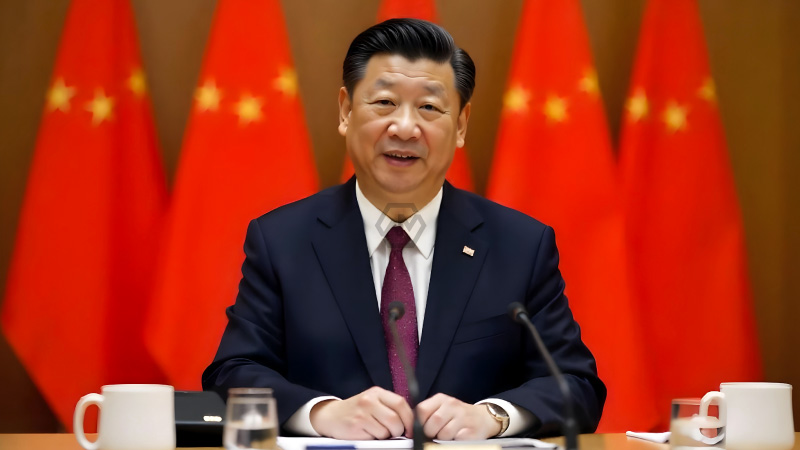- Xi Jinping met with top Chinese business leaders, including Alibaba’s Jack Ma, signaling a pro-business shift.
- The meeting emphasized China’s need for private-sector innovation amid U.S. tech restrictions.
- The absence of Baidu and ByteDance executives raised questions about selective government support.
Xi Jinping’s rare meeting with China’s top business leaders marks a strategic shift in Beijing’s stance toward the private sector. Held in the Great Hall of the People, the gathering included Alibaba’s Jack Ma, Huawei’s Ren Zhengfei, and Tencent’s Pony Ma, highlighting the government’s renewed focus on tech innovation.
This shift follows years of regulatory crackdowns that hampered private tech firms. The government appears to be leveraging business leaders to drive economic recovery, particularly in AI and semiconductor industries.
China’s Economic Strategy Shifts as Xi Courts Tech Leaders
Xi Jinping’s engagement with China’s tech elite underscores the government’s recognition of private enterprise as a key driver of technological progress. The inclusion of AI startup DeepSeek’s Liang Wenfeng and electric vehicle giant BYD’s Wang Chuanfu signals a strategic focus on industries poised to compete globally. By showcasing innovation at home, China aims to counter Western efforts to curb its technological rise.
The meeting also served as a confidence boost for investors, as seen in the rise of Hong Kong tech stocks. The positive market reaction indicates that business leaders and investors are hopeful about a more favorable regulatory environment. However, the absence of figures from Baidu and ByteDance suggests that government support may be selective, reinforcing state influence over critical industries.
China’s balancing act between control and economic growth is evident in this move. While Beijing seeks to harness private-sector innovation, it also remains wary of companies growing too independent. The presence of politically aligned figures like Xiaomi’s Lei Jun and Meituan’s Wang Xing further underscores that Beijing’s trust is reserved for those seen as aligned with state interests.
This meeting reflects a broader recalibration of China’s economic strategy. With domestic consumption lagging and property sector woes persisting, Beijing needs the private sector to stimulate growth. Encouraging business leaders to “show their talent” is not just rhetoric but a necessity as China navigates global economic challenges.
Xi’s meeting signals a recalibration of China’s economic policies, favoring a selective pro-business stance to counter global challenges. However, the extent of this shift remains uncertain.
“The secret of change is to focus all of your energy, not on fighting the old, but on building the new.” — Socrates



